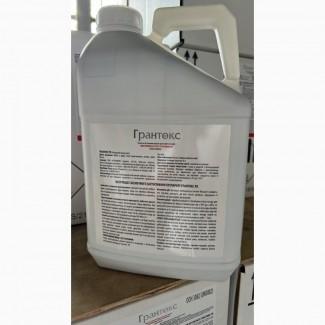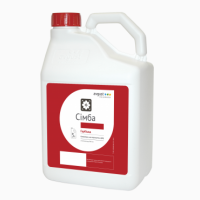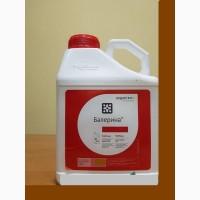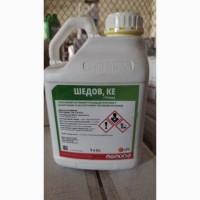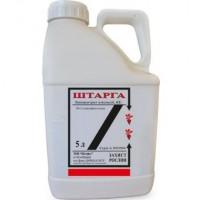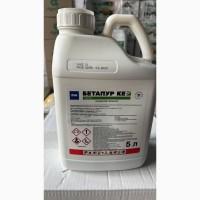/ Fertilizers and plant protection products / Herbicides / Grantox - herbicide against weeds in crops...
For sale / buy
Grantox - herbicide against weeds in crops of corn, sorghum, flax, potatoes, peas, Kyiv region.
Price9.5$
Region:all Ukraine,
Kyiv region.
(Vyshhorodok)
Updated:
Grantox - herbicide against annual and perennial dicotyledonous weeds in grain crops, sorghum, flax,potatoes, peas, and other crops.
Active substance: MCPA in the form of salts of dimethylamine sodium, potassium, 500 g/l
Preparative form: soluble concentrate
Container: 10 liter canister, the price is for 1 liter. 152
Переваги Грантокс РС: застосовується на багатьох сільскогосподарських культурах; знищує бур’яни на сінокосах і пасовищах;
excellent price-performance ratio;
does not affect crop rotation;
quickly decomposes in the soil and dissolves in water, does not have a harmful effect on subsequent grain crops;
has no restrictions on crop rotation; effective against horsetail and thistle.
Reliably protects crops from carrion of rape andsunflower incl. Clearfield.
The mechanism of action of the herbicide Grantox:
The drug is absorbed by the leaves of most dicotyledonous weeds, spreads to all parts of the plant, disrupting their development, which leads to death.
Regulations for the use of the herbicide Grantox
Culture Consumption rate, l/ha Method, processing time
Spring wheat, barley, oats, rye 1.0–1.5 From the tillering phase to the exit into the culture tube
Winter wheat
1.0–1.5 From the tillering phase to the flag leaf
Millet
0.7–1.7 From the tillering phase to the exit of the culture into the tube
Sorghum
0.7–1.7 In the phase of 3–6 leaves of the culture
Peas
0.5 In the phase of 3–5 leaves of the culture
(//tractor-service.com)
Flax longhorn
0.7–1.2 In the Christmas tree phase, at a crop height of 3–10 cm
Potatoes
0.9–1.7 Spraying the soil before the appearance of crop seedlings
Fig.
1.5–2.0 In the phase of full tillering
Creeping and field clover
0.8–1.4 In the year of sowing, after the appearance of the first trifoliate leaf (processing must be completed a month before the end of the growing season)
Field clover (seeds)
0.8–1.4 per yearharvesting seeds, within 2–3 weeks from the beginning of regrowth to the embryonic laying of clover inflorescences (hay for cattle feed is allowed to be used no earlier than 45 days after processing)
Field clover under cover of barley 0.8–1.4 At the appearance of 1–2 tripartite clover leaves (barley tillering phase)
Timofievka Luchna
1.1–2.3 In the tillering phase of the culture
Thornless stokolos, meadow foxtail 1.1–2.3 In the year of crop sowing, from the phase of 1–2 leaves to the emergence of the crop tube
Tall ryegrass, meadow fescue 2.3–2.8 In the year of crop sowing, from the phase of 1–2 leaves to emergence into the tube of the crop
Hay fields and pastures 1.4–4.0 Spraying of vegetative plants, livestock grazing and grass mowing is allowed no earlier than 40 days after treatment
Alfalfa 0.5–0.75 In phase 1–2 of the triple leaf of the culture
Drug compatibility
The drug is compatible with most pesticides and liquid fertilizers. However, in each individual case, a preliminary assessment of the compatibility of the components of the tank mixture should be carried out and the phases of the development of cultivated plants should be taken into account.
Features: it is recommended to use the maximum recommended rate in case of increased weediness and active weed vegetation; optimal use of the drug at an average daily temperature of +12°C to +22°C; it is not recommended to use the drug in crops of cultivated plants that are under stress (cold, drought and other negative factors); the rate of consumption of the working fluid during ground spraying is 200–300 l/ha.
A mandatory requirement when applying the drug is to ensure continuous coverage of the area and abundant wetting of plants; tank mixtures with herbicides based on sulfonylureas, glyphosate, bentazone, etc. are recommended to extend the spectrum of the drug.
Weeds affected by the herbicide Grantox Field birch, field thistle, blue cornflower, small-flowered sedge, field mustard, mouse pea, common dope, creeping yellow sedum, creeping sedge, white quinoa, garden milk thistle, yellow thistle (field), black solanum, common sorrel, common gill, large plantain, wild radish, field talaban, bulbous plantain, ragweed, horsetail.
Active substance: MCPA in the form of salts of dimethylamine sodium, potassium, 500 g/l
Preparative form: soluble concentrate
Container: 10 liter canister, the price is for 1 liter. 152
Переваги Грантокс РС: застосовується на багатьох сільскогосподарських культурах; знищує бур’яни на сінокосах і пасовищах;
excellent price-performance ratio;
does not affect crop rotation;
quickly decomposes in the soil and dissolves in water, does not have a harmful effect on subsequent grain crops;
has no restrictions on crop rotation; effective against horsetail and thistle.
Reliably protects crops from carrion of rape andsunflower incl. Clearfield.
The mechanism of action of the herbicide Grantox:
The drug is absorbed by the leaves of most dicotyledonous weeds, spreads to all parts of the plant, disrupting their development, which leads to death.
Regulations for the use of the herbicide Grantox
Culture Consumption rate, l/ha Method, processing time
Spring wheat, barley, oats, rye 1.0–1.5 From the tillering phase to the exit into the culture tube
Winter wheat
1.0–1.5 From the tillering phase to the flag leaf
Millet
0.7–1.7 From the tillering phase to the exit of the culture into the tube
Sorghum
0.7–1.7 In the phase of 3–6 leaves of the culture
Peas
0.5 In the phase of 3–5 leaves of the culture
(//tractor-service.com)
Flax longhorn
0.7–1.2 In the Christmas tree phase, at a crop height of 3–10 cm
Potatoes
0.9–1.7 Spraying the soil before the appearance of crop seedlings
Fig.
1.5–2.0 In the phase of full tillering
Creeping and field clover
0.8–1.4 In the year of sowing, after the appearance of the first trifoliate leaf (processing must be completed a month before the end of the growing season)
Field clover (seeds)
0.8–1.4 per yearharvesting seeds, within 2–3 weeks from the beginning of regrowth to the embryonic laying of clover inflorescences (hay for cattle feed is allowed to be used no earlier than 45 days after processing)
Field clover under cover of barley 0.8–1.4 At the appearance of 1–2 tripartite clover leaves (barley tillering phase)
Timofievka Luchna
1.1–2.3 In the tillering phase of the culture
Thornless stokolos, meadow foxtail 1.1–2.3 In the year of crop sowing, from the phase of 1–2 leaves to the emergence of the crop tube
Tall ryegrass, meadow fescue 2.3–2.8 In the year of crop sowing, from the phase of 1–2 leaves to emergence into the tube of the crop
Hay fields and pastures 1.4–4.0 Spraying of vegetative plants, livestock grazing and grass mowing is allowed no earlier than 40 days after treatment
Alfalfa 0.5–0.75 In phase 1–2 of the triple leaf of the culture
Drug compatibility
The drug is compatible with most pesticides and liquid fertilizers. However, in each individual case, a preliminary assessment of the compatibility of the components of the tank mixture should be carried out and the phases of the development of cultivated plants should be taken into account.
Features: it is recommended to use the maximum recommended rate in case of increased weediness and active weed vegetation; optimal use of the drug at an average daily temperature of +12°C to +22°C; it is not recommended to use the drug in crops of cultivated plants that are under stress (cold, drought and other negative factors); the rate of consumption of the working fluid during ground spraying is 200–300 l/ha.
A mandatory requirement when applying the drug is to ensure continuous coverage of the area and abundant wetting of plants; tank mixtures with herbicides based on sulfonylureas, glyphosate, bentazone, etc. are recommended to extend the spectrum of the drug.
Weeds affected by the herbicide Grantox Field birch, field thistle, blue cornflower, small-flowered sedge, field mustard, mouse pea, common dope, creeping yellow sedum, creeping sedge, white quinoa, garden milk thistle, yellow thistle (field), black solanum, common sorrel, common gill, large plantain, wild radish, field talaban, bulbous plantain, ragweed, horsetail.
|
Shop, contacts | |
Yuriy / reviews, info. / evaluation activities | |
|
Phone:
+38(xxxxxx
show
| |
All user ads ~1000 | |
Ad ID: #1005723
(added by a registered user, registration date: 08-10-2016)
Added / Updated: 10-15-2025 09:26 (current, until: 10-15-2026)
Permanent Ad Address:
Impressions / views for today: ?, total: ?
Similar ads
There are many interesting ones among them...
